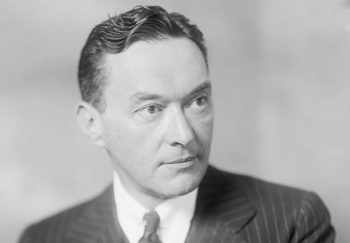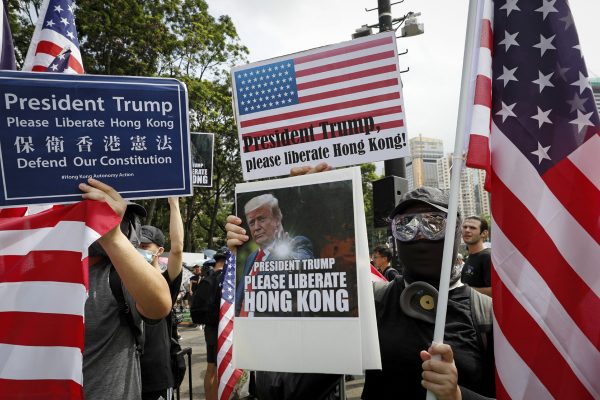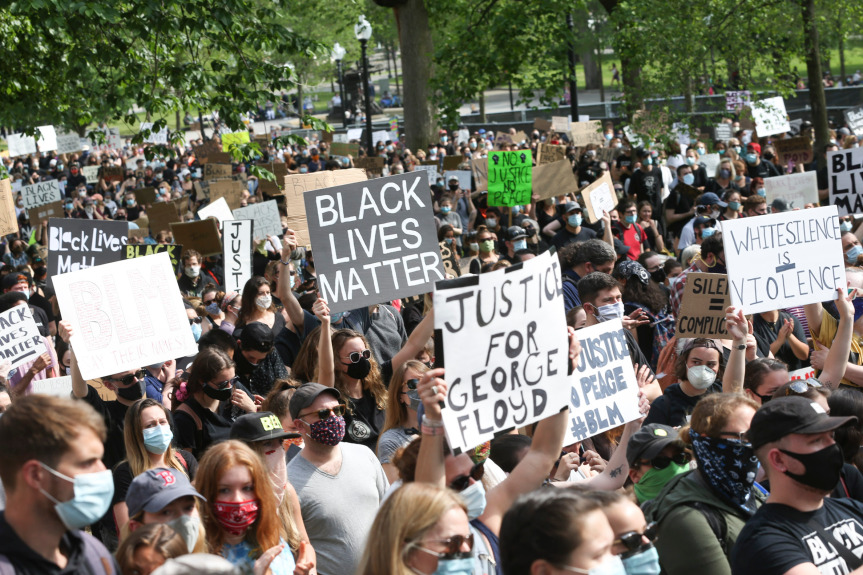
ORIENTATION
In my last article I showed how the word “totalitarian” was used as a loaded vice word to attack the Soviet Union after World War II and to red-bait communists around the world. The use of the word totalitarian began in the 1930s, but even before then in the 1920’s the word “dictator” began to surface in order to explain another political response to the crisis in capitalism. We will study the use of this term from the 1920s to the end of World War II, although of course the word dictator is still used for propaganda purposes today against socialist governments.
If I were to ask 95% of the Yankee population “Is Putin a dictator”, almost all would say “yes”. If I were to ask “Is Maduro a dictator” I would get the same response. But if six months ago I were to ask “Is Trump a dictator” the answer would be mixed. This is because the CIA controlled political propaganda machine saves the word “dictator” for foreign countries, inevitably the heads of socialist or communist states. But here in Yankeedom we don’t have dictators, not even Donald Trump.
Within the same time period, the 1920s, the word “democracy” was also manipulated to mean different things at different times but for the same anti-communist reasons. In the first half of this article I will discuss the propagandistic use of the word dictator and in the second half I will discuss the propagandistic use of the word democracy. For the section on dictatorship, I will be drawing mostly from Dictators, Democracy and Envisioning the Totalitarian Enemy 1920s-1950 by Benjamin Alpers. For the section on democracy I will be using mostly The Crisis in Democratic Theory by Edward Purcell Jr.
THE UNITED STATES FLIRTS WITH DICTATORSHIPS IN THE 1920S AND EARLY 1930S
In the 20s the U.S. press praised Mussolini for bringing political order to Italy. So relieved was the U.S. press at Mussolini’s seizure of power in 1922 that few journalists bothered to report his hostility to democracy or his radical-left past. From Mussolini’s march on Rome in 1922 to mid-1930s, dictatorship was seen sympathetically on the left (Stalin’s dictatorship) as well as on the right. The same praise was given to Stalin’s first 5-year plan. As Mussolini’s prestige rose in the U.S., Stalin was seen as accomplishing wonderful things by labor representatives, public health workers and engineers.

TIME magazine, the flagship of the rightwing Luce press empire, was always quick to praise strongmen of the right. Here, Mussolini (one of several covers devoted to him), on 20 Jul 1936.
In a 1932 interview with Mussolini, the press packaged him as a model for the U.S. as “what a real dictator would do”. Here is an excerpt from Barron’s editorial section: “Whether we are quite ready to admit it or not, sometimes openly and other times secretly, we have been longing to see the superman emerge… Of course, we all realize that dictatorships and even semi-dictatorships in peacetime are quite contrary to the spirit of American institutions and all that.”
Rather than rejecting the fear that “it can’t happen here” the sociologist Robert Lynd suggested that the capitalists secretly desired a dictatorship.
Dictatorship and the Great Depression
The coming of the depression made dictatorships more attractive. Mussolini received a favorable reception by capitalists as a dictatorship seemed like an efficient way to deal with labor unions, economic depressions and a way to organize an economy along non-socialist lines. In the early years of the Great Depression, dictatorship was an important political fantasy. The image of a dictator was a great man, one who was able to lift himself to prominence despite humble beginnings.
Dictatorship was understood as a personality and not part of a political structure. The dictator was the ultimate “doer”. Liberals bent over backwards explaining why dictatorship did not make it the opposite of democracy. Dorothy Thompson argued that good dictators can save democracy; bad dictators can destroy it. In the middle of the 1930s, 33% of unemployed engineers agreed with the need for a dictator.
In 1932-33, the necessity for a dictator in the U.S. spread to the movies, including two Hollywood films. In the documentary Mussolini Speaks, no reference is made to fascist brutality. The film celebrates Mussolini’s enormous control of the crowd. In its initial run at the New York Place Theatre, it received critical and popular success. In 1933 the New York Times gave it an enthusiastic review.
The film Gabriel over the White House advocated dictatorship in the U.S. In the film, a dictator tells Congress it has turned its back on the people. The dictator solves the problems of unemployment and organized crime. The newspaper magnate, Randolph Hearst, collaborated with this film. It was a hit at the box office but encountered mixed reviews. The problem was that the film hit theaters just as the Yankee longing for dictators was coming to an end. Italy’s invasion of Ethiopia in 1935 ended Mussolini’s popularity in the U.S. During the social and economic crisis of the 30s, U.S. analysis had briefly hoped that dictatorship might offer a more efficient way to unify and organize capitalism. As the costs of dictatorship rose in the late 30s, sociologists and historians, instead of blaming capitalist chaotic economic relations for interest in dictators as forces of order, blamed the masses for the existence of their now demonized dictators.
Roosevelt, Hitler and the End of the Romance with Dictators
While there were a minority of conservative groups that greeted Hitler’s rise with an anti-communist sigh of relief, the arrival of Hitler to power in 1933 ended the flirtation with dictatorship as a virtue word. After 1935 business journals began to equate fascism and communism. By the 2nd half of the 30s, dictatorship became an evil word. In 1927 “dictator” had enough favorability to have a car named “dictator”. The name of the car was recalled after 1937. In the early 1930s dictators were seen as either heroic (Mussolini) or horrific (Hitler), but each was admired as a man who single-handedly tamed the unruly masses and restored honor to the nation. By the late 1930s dictators were thought of as one-sidedly negative. Dictatorship became a loaded vice word. Dictators were subjected to pop psychological analysis or treated as buffoons, as in the movie of Charlie Chaplin or in the Three Stooges. In fact, Chaplin’s film on Hitler was the highest money-making film in the U.S. between 1933 and 1942.
In the United States the right-wing even accused Roosevelt of being a dictator throughout his term. There was a mocking phrase “Third Reich, Third International, Third Term” slogan for him. Even in 1937, 37% feared Roosevelt was becoming a dictator. In 1938 the figure rose to 50%. So, in the 1920s and early 1930s, dictatorships were seen as a temporary solution to social problems; whereas in the late 1930s dictatorships appeared to be the cause of social problems and perpetuated by mass media and the masses.
The absence of fathers promotes desire for dictators (Roosevelt)
One theory had it that American family life was in trouble. The need for more than one income put women in the workforce and this undermined the role of the father. There had to be some authoritative figure to be looked up to. Roosevelt’s Fireside Chats provided this substitute. The dream of defeating Hitler through the patriarchal authority of Roosevelt backed by supportive women was present in a number of American films. In the novel, The President Vanishes, fascism comes to America, but it was overcome by a strong leader with the backing of a good woman.
Hollywood’s first attempt to deal with German politics was in the novel, Little Man, What Now? by Hans Fallada (1932). It contrasts the stable bonds of matrimony against chaotic political action. It presents dictators as produced by rifts in the social fabric. Improved family life offered the best opportunity to mend it. In Sinclair Lewis’s It Can’t Happen Here a populist demagogue with fascist overtones, along with a core of “white-shirts”, win the election. Minutemen seized Congress and abolished political parties. A resistance formed, called “New Underground”, and was led by a Yankee individualist who saves the day.
THE AUDIENCE ITSELF IS THE DRAMA: DICTATORSHIP, CROWDS AND MASSES 1936-1941
Up until now, dictatorship was focused on the individual dictator and had little to do with the masses. But by the late 1930s there was a shift from the personality of the dictator to a crowd-centered explanation of modern dictators. If in the early 30s Americans were fearful or hopeful of a single man asserting himself and ruling the country by his will, in the last half of the decade the personality of the dictator was dethroned as an explanation for the existence of dictators. It was the crowd or the masses that produced dictators. In the early 1930s, dictatorships paid little attention to the political actual organization of the dictatorships except for a very few groups. By the late 1930s there was much more attention paid to the social situation out of which dictatorships emerged.
Cynical Views of the Public
Dorothy Thompson suggested that public opinion, not any desire on the part of the president, was responsible for the danger posed to democracy. In the play by Archibald MacLeish, Fall of the City, with Orson Welles and Burgess Meredith, the message was that people invent their oppressors. Masses wish to believe in them; they wish to be free of their freedom. The leader is a projection of the masses wanting to be dominated. Dictatorships don’t end once the dictator has disappeared. What explains the dictator? In the early 1930s fascism was the tyranny of a minority. But by the late 1930s fascism was understood as the work of the crowd. In the early 1930s order was understood as a good thing, something that restored peace. Order was understood in mechanical images such as the machines of Henry Ford and Fredrick Taylor. But by the 1930s, the order of a regimented crowd became a dangerous thing. By the late 1930s bad order existed because people desired regimentation, fanatical chanting and saluting in unison.
Just as the bomber squadron – powerful, ordered, cruel and devoid of autonomy – was the dominant representation of the dictatorial forces of Europeans in war, so the regimented crowd, standing or goose-stepping became the prevailing image of European dictatorships in peace. The word “mob” had taken on new meaning with the rise of Al Capone. The FBI projected a view of Nazis and Communists that was similar to popular notions of organized crime: a vast secret network running a racket that was political as opposed to criminal. In real life, mobs are disorganized social bodies of individuals with no coordination. Fascist or communist crowds were hyper-coordinated and the opposite of mobs.
For extreme conservatives, the most obvious explanation for the rise of the regimented crowd was nationality. The American Legion’s response against communism was a call to cut European immigration quotas by 90%. In other words, Italians and Germans as ethnicities were believed to be more likely to produce crowd violence than the respectable English or Norwegians.
Crowds vs Masses
What did this new kind of crowd look like? In the 1930s, crowds were understood as a minority of the population, arising spontaneously, chaotic, but having a short-term lifetime. They had a diffused attention span and were not very efficient. Crowds in the early 30s were predominantly male and crowds had to be in the same place at the same time. Because of this, members of crowds could easily be dispersed, jailed or deported. However, once the individual left the crowd they returned to their normal behavior as individuals.
Modern communications technology, specifically the radio, allowed crowds to be called into existence even when people were not physically gathered together and when the speaker was at a great distance. This crowd was now a mass, focused and much more long-lasting. Further, an individual as a member of a mass does not leave his mass-mind when he leaves a crowd or turns off his radio. He maintains a crowd-mind even when alone. Masses in the late 1930s constituted a majority of the population who voluntarily joined, were regimented and could move efficiently. Masses arose with the decline of all intermediate groups and voluntary associations. In the late 1930s masses were mostly male, but women were out and seen in public.
Sympathetic Views of the Public
Frank Capra founded his own independent film production in 1939 which dealt with the regimentation of crowds. In both Mr. Deeds Goes to Town and Mr. Smith Goes to Washington, Capra makes the press responsible for creating public opinion. Capra was a conservative Republican, but it was not only conservatives who blamed mass media for the rise of mass men. In War of the Worlds, Orson Welles wants to spread democracy by exposing the hold mass media has on people. In Citizen Kane, Wells wants to turn the audience into investigators instead of relying on mass media.
Raymond Cantril studied the public reaction to War of the Worlds, but Cantril did not blame mass media. In his Invasion from Mars in 1938, it was not because of mass media that people were duped. It was because of their willingness to believe they were being invaded. Some people lacked the critical thinking ability to disbelieve what the radio was telling them. On a psychological level, formal education would discourage a willingness to believe. At the same time, the timing as to when they tuned into the broadcast was an important situational factor in explaining the masses’ reaction.
More importantly, Cantril concluded that social stress explains the rise of dictatorships. His conclusion was that economic hardship is the cause of the rise of dictatorships and makes people less rational. Unstable political and economic institutions are responsible for that and this results in the cultivation of ignorance, intolerance and abstention from democratic processes.

DEMOCRACTIC THEORY
The Reality and the Fantasy of Democracy
A number of years ago, according to a UN conducted analysis of democratic processes, Yankees ranked 29th in the world. Something like 28% of the population do not vote and another 24% is ineligible to vote. The Yankee public is known around the world as not wanting to talk about politics. When asked, roughly 2/3 of Americans say they want more than two parties. Yet, if you asked soldiers why they were fighting you would be told they are fighting for democracy. How can there be a democracy with only two parties from which to choose? If you ask the general public if they live in a democracy, they will say yes. How can this be? The answer is that the virtue-word “democracy” has been worked into the anti-communist propaganda machine whereas “totalitarian” and “dictatorship“ are used as vice words, which are counter to the virtue word “democracy”.
Traditional Jeffersonian Democracy
In the United States, the first theories of democracy, Jeffersonian, literally meant the rule of the people. Democratic processes supposedly took place in face-to-face town-hall meetings and discussions. The population was imagined to be intelligent and informed. Their decisions were based on conscious and rational thinking processes. Whatever the place of emotions, they were toned down. People were expected to know their self-interest and the way they made their political judgments were thought to be by weighing the pros and cons.
Skepticism of Democracy: Merriam, Lasswell, Wallas and Lippman

Lippman: Widely respected, he was one of the most influential liberal intellectuals of the 20th century. Never mind his true business was to counsel the plutocracy.
By the second decade of the 20th century, “the people” were not seen in such a favorable light. Charles Merriam and Harold Lasswell challenged the rationality of human nature and the practicality of a government where the people ruled. Both believed that politics should be the study of how small groups dominate. They thought that politics should be about the study of the influential minority. In the 1920s there was a great controversy over how to interpret the terrible scores of Yankee soldiers on IQ tests. The dominant schools of psychology such as Freud and the crowd psychology of Gustave Le Bon argued that people were driven by the irrational forces located in the unconscious. Graham Wallas and Walter Lippmann both argued that the ideal human society would be if a few intelligent leaders directed the majority. According to them, the public does not process political events as they happen objectively but through past experiences. Lippmann said in his book Public Opinion, that town-house democracy could no longer work. From the late 19th century, thanks to mass communication, people now have to rely on newspapers and political propaganda for their sources. For Lippmann, the best we can hope for is an elite democracy. He became even more right-wing as he aged, suggesting that people should not be taught to meddle in public affairs.
Lasswell suggested that deep hatreds within the families of Yankees were sublimated into public life. Individuals were thought to be a bad judge of their own self-interest. Free and open discussions obscured rather than clarified problems. Another indicator that the public was not trustworthy came from a study of Chicago politics in which it was found that half the public did not vote. As we saw in the first part of this article, Yankee elites flirted with dictatorship as their skepticism for democracy grew. It wasn’t until the rise of Hitler that they began to defend democracy ideologically, if only for propagandistic purposes.
Cowin and Eliot put a smiley face on public indifference. They argued that the reason people didn’t vote was because they were satisfied with the system! Some said the indifference of people to principles was a crucial factor in the success of popular government. Non-voting kept the public from being divided sharply into coalitions. Given the fickleness of public opinion, those who did vote ensured that no impassioned commitment (god forbid) would mobilize large numbers for a sustained confrontation. In other words, apathy is good because it keeps people from having ‘extreme” opinions. Besides, people are too busy to be bothered with politics.
It rarely occurred to any of these theorists that the reason over half the people do not vote was that, at least for working class people, there was no one to vote for because both parties were controlled by the ruling class. Instead, they avoided this problem completely, by comparing it to the totalitarian system of the Nazis. John Dewey tried to make democracy akin to a scientific experiment which: a) denied absolute truths; b) remained intellectually flexible and critical; c) valued diversity, and; d) drew from competing subgroups as a base. Dewey tried to link democracy to science, not considering that masses of people do not apply scientific methodology to politics. Dewey was setting the table for the political pluralism of the 1950s.
Schumpeter’s Competitive Elitism
In 1942 Joseph Schumpeter published Capitalism, Socialism and Democracy, which became one of the foundation stones for the pluralism of Robert Dahl over a decade or so later. For Schumpeter, power configurations are stable and in the long run, they do not change. What is democratic is not the extent to which people are involved, but rather the centrality and stability of political leadership. The state was not an expression of the people’s will but an independent and well-trained administration. The political culture is fractured. People not only have different wants but different values and methods of achieving them. This is why democracy must be concentrated in the leadership. Schumpeter agreed with Le Bon’s theory of crowds, so he thought people were easily influenced by demagogic leaders, advertising, fads and fashions. Politics is dominated by party politics which have little to do with the public. Schumpeter argues that the intermediate groups, the voluntary groups so dear to de Tocqueville, really were not significant. In reality, there was no significant mediation between the state and the individual. At this point, you might think “what does this have to do with democracy?” Schumpeter says that elites have different interests and the voters have the power to vote in or vote out elites.
The Tough-minded and Tenderhearted Politics
Competitive elitism is the bad conscience of the pluralists of the 1950s. Competitive elitism is based on the realism of Max Weber. Pluralist political science was based on the softer sociology of Emile Durkheim. The relationship between competitive elitism and pluralism is like the relationship between Freud and most of his followers. Anna Freud, Adler and Ernest Jones tended to soften Freud and dress him up in his Sunday best. The same can be said about the political relationship between Hobbes and Locke. Hobbes is the hard-core pessimist, while Locke preserves some parts of Hobbes but softens him into a respectable liberalism. In other words, Schumpeter, Weber Freud and Hobbes were pessimistic realists. The pluralists with the aid of Durkheim were the tender- hearted liberals like Locke and orthodox psychoanalysts.
Pluralism of V.O Key, Dahl, Truman and Lindholm
On the surface it appears that competitive elitists are the opposite of pluralists. After all, unlike the competitive elitists, according to David Reisman, power in Yankeedom is situational and mercurial rather than consisting of stable power blocks. V. O. Key, Jr., one of the most influential political scientists of the post-war era, says there is a wide dispersion of power in his book Politics, Parties and Pressure Groups. The belief that American society was pluralistic led to a revival in the 50s of the group theory of politics, drawing from Arthur Bentley’s 1908 book The Process of Government. Unlike the competitive elitists, Dahl argues that there are overlapping interest groups with equal access to power, because power is always changing. The pluralists think that the public can mobilize itself to be a force to be reckoned with. Competitive elitists think this is naïve.
This third relativist democratic theory was essentially a defensive doctrine. It emphasized civil liberties, but minimized the problems of social and economic inequality. Another pluralist, David Truman, in his The Governmental Process: Political Interests and Public Opinion, assumed that the US had already succeeded in its democratic goal. Social scientists were more concerned with problems of conserving what already existed. They devoted more and more research to the problem of stability rather than change. For pluralists, the nation states do not have independent power as they do with the competitive elitists, but they are mediators of public demands. The public does not have a fractured set of wants, methods and values. Rather Yankees are united by the constitutional rules of a supportive, rather than combative political culture.
The most influential and persuasive advocate of realistic democratic theory was Dahl’s book, Preface to Democratic Theory in 1956. According to Dahl, In American government, majorities rule through pressure groups which were the empirical basis of democracy. Dahl and Lindblom argued that economic problems depend not upon our choice among mythical grand alternatives like socialism or communism, but by a gradual, tinkering method. Being rational meant that all ideologies were mythical and have to be abandoned. Pluralists supported the “end of ideology” belief of the 1950s. The very concept of a realistic democratic theory implied that reality, not an ideal, was the primary criterion of both theoretical validity and legitimate political action. It deprived democratic theory of its traditional critical function.
Since ideal and empirical theory were conceptually and unconsciously fused, reality became the standard for both systematic analysis and ideal behavior. Reality became the standard to evaluate ideals rather than ideals being the standard by which to judge reality. The pluralists admit that there is a passive citizenry, but there is also an active citizenry which is sufficient for political stability. Lastly, for the pluralists, intermediate associations of neighborhoods, religious groups, clubs, trade associations, political clubs mediate between the individual and the state.
What draws the pluralists into the orbit of competitive elitists is that each has completely given up on Jeffersonian democracy. They have also given up on the idea that the electoral process is itself undemocratic. There is no talk about having candidates that actually represent the lower classes or that the electoral college is a damper on the popular vote. The system is acceptable as it is. It’s just a matter of convincing people to believe in it.
Pluralism did not fare well in the 1960s because it could not explain racism, poverty, and war. With no hesitancy, it assumed that Yankeedom already was the democratic ideal. Pluralism imagined that only absolute, authoritarianism, and rationalism could be ideological. They couldn’t imagine that pluralism, empiricism, and pragmatism could themselves be ideological. But books like The End of Ideology can itself be an ideology for liberal anti-communism.
DID CAPITALISM PRODUCE DEMOCRACY? ARE THESE WORDS INTERCHANGEABLE?
Capitalist rulers never seem to tire of reminding us that capitalism is responsible for creating democracy and that socialist societies are never democratic. What this ignores is the 20th century examples of capitalist political economies that prospered without democracy including Hitler’s Germany, South Korea, Taiwan after World War II and Saudi Arabia and Egypt. Secondly, there is no necessary relationship between prosperity and capitalism. Most of the countries on the periphery of the world-system today (mostly Africa) are capitalist, run in an authoritarian manner that have low Gross National Products.
But what about the origins of capitalism? Weren’t capitalists responsible for the beginnings of democracy? The short answer is no. According to Rueschemeyer, Stephens and Stephens, in their book Capitalist Development and Democracy, the bourgeoisie wrested its share of political participation from the royal autocracy and aristocratic oligarchy, but it rarely fought for further extension to the classes below them once its own place was secured. When the bourgeoisie was fighting for power against the king and the aristocrats it recruited the lower classes. But once in power themselves they did not support lower class inclusion. Their contribution was to establish parliamentary bodies between the king and the people rather than to accept the rule of a king alone. Parliamentary bodies are not necessarily democratic. As Marx once called them, they are the “talking shops of the bourgeoisie”. Even by World War I only a handful of countries had become democratic: Switzerland, 1848; France, 1877; Norway 1898 and Denmark 1915.
Historically, it was the urban and rural petty bourgeoisie – merchants, craftsman, farmers – who were responsible for the movement towards democracy. Further, it was the industrialization process that transformed society in such a way that it empowered subordinate classes to make it difficult to politically exclude them. It was capitalist development that transformed the class structure, strengthening the working and middle classes and weakening the landed upper class. It was not the capitalist market that made political life more democratic. Rather it was the contradictions of capitalism. It was the growth of the working class and its capacity for self-organization that pushed for a breakthrough to suffrage, at least for white males. It was the rising militancy of the unions and the threat of socialism that pressured capitalists to include workers in the voting process and institute a semblance of formal democracy.
LIBERAL CONSPIRACY: MODERNIZATION THEORY AS ANTI-COMMUNIST DEMOCRACY
“our strategy must be …both global, embracing, every part of the world, and total, with political, psychological, economic and military considerations integrated into one whole.” —International Development Advisory Board Partners in Progress, 1951 - David Rockefeller: Head of International Development Advisory Board
While American pluralism was the norm for domestic democratic theory, students of comparative politics were making pluralistic democracy the norm for their analysis of nation-states throughout the world. As the U.S. became involved in the Cold War, they wanted research to help them understand what Gabriel Almond called political development of nations, through what Almond called“political culture”.
The major book I will be using to take us through this section is Nils Gilman’s Mandarins of the Future: Modernization Theory in Cold War America. Almond’s comparative politics was a significant aspect of modernization theory, part of a vast integrated anti-communist project that began after World War II. In fact, the very creation of the MIT Center for International Studies was the result of top secret anti-Communist propaganda project in the fall of 1950. As Gilman says, modernization theory represents the most explicit and systematic blueprint ever created by intellectual elites for reshaping societies throughout the world to counter Soviet communism. Arthur Schlesinger said modernization theory represented an American effort to persuade what were then called “Third World” countries to base their revolutions on Locke, rather than Marx.

Many of the key figures in modernization theory were children of missionaries like Lucian Pye and David Apter. Their sense of wanting to save the world (from communism) no doubt impacted their study of comparative politics. Almond and Rostow claimed that communism was a form of psychopathology and Rostow called it a “disease”. Rostow is considered the most hawkish anti-communist of the modernization theorists. He decided at 16 that his life purpose was to construct a theory of economics and history capable of countering Marx. During the war he first worked for the OSS, a predecessor to the CIA.
In the hands of Lucian Pye and Walt Rostow, modernization theory would represent liberalism’s attempt to enter the world of political ideology, as an alternative to both fascism and communism. An added twist was to dissolve their liberal ideology and pretend that it was neither liberal nor ideological. They made believe they had no ideology. It’s just what was reasonable, a “vital center” of the political spectrum. This masking of liberalism became part of the End of Ideology orientation of Daniel Bell.
Modernization theorists were elitist, liberal anti-communists, not populist, right-wing McCarthyites. In practice this project was part of a containment policy against the Soviet Union. They set a dominant social scientific paradigm, and found sponsors like Rockefeller, Carnegie and Ford and other foundations to set up think tanks and eliminate rivals in various academic disciplines. Please see Table B for all the tentacles of this anti-communist project.
Rostow’s theory of modernization was a unilinear theory of social evolution going through five stages: 1) traditional societies; 2) preconditions for take-off; 3) take-off; 4) drive to maturity, and; 5) age of mass high consumption. All other disciplines in Table B went along with Rostow’s theory.
What all these interdisciplinary projects had in common was either assumptions or assertions that:
- All premodern societies – hunter-gatherers, simple horticulture, complex horticultural, herding, maritime societies and agricultural states – can be lumped into one category of “traditional societies”
- All nation-states are internal. There is no influence (such as colonialism) on traditional societies by modern societies. They are premodern because they are superstitious and lack initiative.
- All societies are inevitably moving towards industrial capitalist societies (though they never name it as capitalist). The use of the term “transition” suggests that there are no crises, no reversals, no other roads possible.
- All “mature” modern societies are industrial capitalist.
- Fascism was not an expression of modern society but premodern “residues” .
- Communism was not a candidate or a road to be taken as a stage. It was pre-modern.
- The United States and western Europe already achieved maturity and they were not going back.
- Capitalism and democracy were used interchangeably.
- Capitalism as an economic system is never named. It is replaced by euphemisms such as “markets” or “business” or loaded virtue words like the “free market” or “free enterprise” if they are feeling defensive.
CONCLUSION
In order to justify its existence as an industrial capitalist society, capitalists in western Europe and the United States need propaganda to censor or demonize alternatives to its rule. In the realm of language, its job is to narrow the frame of political and economic reference to two choices. For this purpose, it deploys key loaded language words for the purpose of working people up. On one side are the socialists and communists who are demonized with words such as totalitarian or dictatorial. On the other side are the loaded virtue words like democracy, the free market or free enterprise. In order to break away from the narrowing of the political focus we need to neutralize and define key terms which open up rather than narrow our political and economic choices.




















